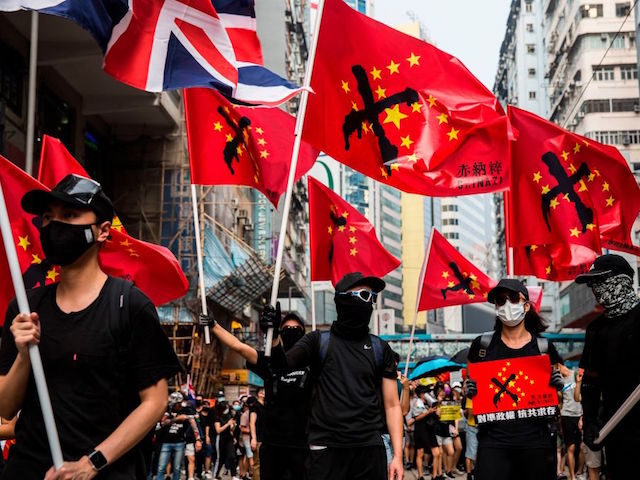The encrypted messaging service Telegram said on Sunday that it will temporarily refuse user data requests from Hong Kong courts due to the turmoil from the national security law imposed by Beijing.
Similar statements were soon issued by Facebook and WhatsApp, a service owned by Facebook that competes with Telegram.
“We understand the importance of protecting the right to privacy of our Hong Kong users under these circumstances. Accordingly, Telegram does not intend to process any data requests related to its Hong Kong users until an international consensus is reached in relation to the ongoing political changes in the city,” company spokesman Mike Ravdonikas said on Monday.
The Hong Kong Free Press (HKFP) noted that Telegram’s terms of service advise users that it would comply with terrorism-related court orders and could “disclose your IP address and phone number to the relevant authorities.”
Privacy advocates have long worried that “terrorism” is a broadly-defined charge that could be invoked by the authorities of various nations to fish for private information about Internet users. These fears became especially acute with the imposition of the Hong Kong national security law, which shreds the legal protections previously employed under the city’s limited autonomy and makes it possible for the Chinese Communist Party (CCP) to charge any political dissident with “terrorism.”
“Telegram has never shared any data with the Hong Kong authorities in the past and does not intend to process any data requests related to its Hong Kong users until an international consensus is reached in relation to the ongoing political changes in the city,” Telegram’s Ravdonikas clarified in another statement. He acknowledged that Telegram has been an important resource for Hong Kong democracy activists and the protest movement that dominated the news in 2019.
Facebook and its WhatsApp messaging service also issued statements on Monday that they will temporarily freeze government requests for user data from Hong Kong, “pending further assessment of the National Security Law, including formal human rights due diligence and consultations with international human rights experts.”
“We believe freedom of expression is a fundamental human right and support the right of people to express themselves without fear for their safety or other repercussions,” a Facebook spokesperson said on Monday.
The Associated Press noted while reporting these statements from Telegram, Facebook, and WhatsApp that Hong Kong users of various social media services “have begun scrubbing their accounts and deleting pro-democracy posts out of fear of retribution.”
The Wall Street Journal (WSJ) anticipated over the weekend that Hong Kong would become a “high-wire act” for Big Tech companies, including some that were long ago banned in China but remained popular in Hong Kong. Refusing Beijing’s demands for user data or commands to censor the posts of political dissidents could “put them at risk of legal action under the new national security law,” while complying would essentially destroy their appeal to Hong Kong users and “leave the companies open to criticism from politicians in the U.S. or UK.”
The WSJ noted that Google and Apple have complied with Chinese Communist Party (CCP) demands to take down apps that were useful to pro-democracy demonstrators in Hong Kong or reflected their movement in a positive light. Google’s services are largely blocked in authoritarian China, but Apple does a great deal of business there, so the CCP has a great deal of leverage to force Apple to comply fully with the Hong Kong security law.
One key player still on the fence as of Monday was Twitter, which like Facebook and Google is popular in Hong Kong but banned in China, although Twitter inexplicably allows CCP officials to use Twitter accounts to push Chinese Communist propaganda into Western media space. According to the WSJ, Twitter is still considering the ramifications of the Hong Kong security law and has not yet decided if it will respond as Telegram, Facebook, and WhatsApp have done.

COMMENTS
Please let us know if you're having issues with commenting.